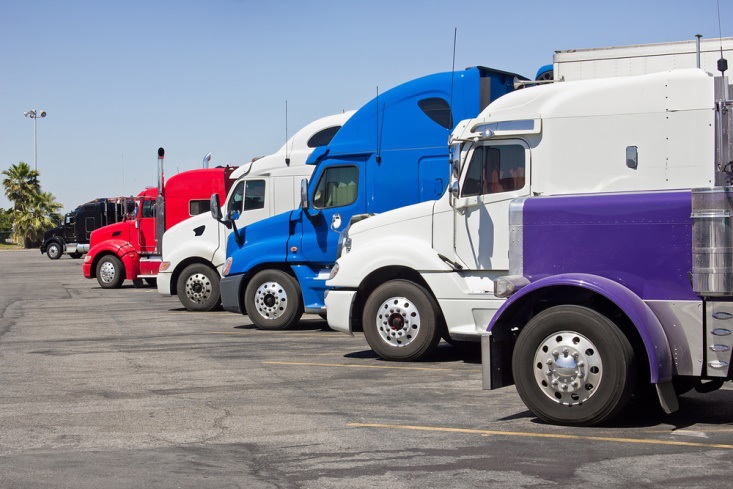Most independent owner-operators have one big dream: owning a full fleet of commercial trucks. Large fleets are faster and more efficient, better organized and more prestigious than fleets with 25 or fewer trucks, which means they can muscle nearly any other trucker off the road. Large fleets are stable and rewarding investments ― but they aren’t usually easy to create.
If you have hopes of turning your single truck into a fleet of 100 or more, you have an uphill battle before you. Still, by maintaining a level head (and level credit) you can achieve your dream. This guide highlights the steps you should take when expanding your trucking fleet from one lone rig to a hundred busy trucks is your burning ambition.
Hire Dependable Drivers
In a survey of fleet owners regarding the important aspect of building and maintaining a trucking empire, the largest percentage by far (more than 43 percent of respondents) said that the driver is the most important element and holding down a good one is more important than buying more vehicles. The reason for this is two-fold:
- You can’t drive more than one truck, and as you work on expanding your business, you will probably want to give up driving for good; and
- The national driver shortage is making finding and keeping good drives a chore, and there is no sense paying for a truck before you have someone to drive it.
There are a few places you can look to find drivers. Online job boards dedicated to trucking (like this one or this one) are likely your best bet, as you can usually trust applicants to have the necessary credentials for commercial transport. You can also try attracting good drives to you through marketing means, like social media. If that fails, you can ask contacts in your trucking network for leads on drivers.
Build a Back Office
Your drivers may be the stars of the show, but they won’t know their lines or their stage directions without a smart and organized back office. In particular, you need a dispatcher who has the experience and intelligence to keep your trucks on track. Other office workers, like logisticians and administrators, will also help manage your fleet as it grows so nothing becomes unbalanced and breaks your business. In the beginning stages of your fleet, you will likely assume a few of these responsibilities, but eventually it is more economical for you to devote your energies to other endeavors and leave the rest to the professionals.
Trust Your Dealer
There are a few different methods of acquiring vehicles for your fleet. Obviously, you can buy a commercial truck, like this one, in the same what that you buy a car ― by financing it or paying for it in cash. Alternatively, you can lease a commercial vehicle, which can be advantageous for new fleet owners who lack the resources to constantly maintain their trucks. You can do so with a used truck, as well, as long as you trust your truck dealer.
Because commercial trucks experience extensive use, used trucks can be a significant gamble. Though their low sticker prices may seem appealing, you could end up spending thousands more on unexpected problems ― which also ground your truck and prevent you from making profits. Whether you opt for new or used vehicles, you must be certain your dealer is providing high-quality products.
Know Your Banker
Eventually, when your fleet is profitable enough, you should start purchasing your new vehicles. Fortunately, ownership allows you better control over your fleet; unfortunately, obtaining financing can be exceedingly difficult for commercial trucks.
Your credit score is more important during a commercial truck purchase than it ever has been or ever will be, so it is imperative that you work to improve it as best you can before attempting to buy a new vehicle. Even if your credit score is good, many banks decline financing requests for flimsy reasons, such as:
- You have a new business
- You are an owner-operator
- You have low cash reserves
- You are buying an older truck
- You are buying from a third party
Therefore, it is often useful to have a relationship with your banker, so they know to look past potential risk factors and give you the financing you need to grow your fleet to 100 and beyond. Similarly, if you work with other companies for financial services, such as transportation factoring, you can likely work with the team there to explore financing options.

